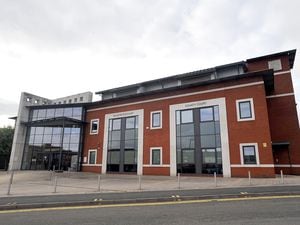Knife crime epidemic fuelled by cuts report states
A report on knife crime by the YMCA has stated cuts to “life-saving” youth services have caused a rise.

Funding totalling £1 billion has been cut to these services in less than a decade – with the latest figures from YMCA showing local authorities in the West Midlands have reduced spending on youth services by 80 per cent since 2010/11.
The organisation’s Youth Select Committee launched its report, titled ‘Our Generation’s Epidemic: Knife Crime’, at a House of Commons reception.
Following a 2018 UK-wide ballot of 1.1 million young people aged 11 to 18, they declared knife crime their biggest concern.
And figures from West Midlands Police show that 40-to-50 per cent of victims of knife crime in the Black Country since November 2018 were aged under 25.
According to official figures from the Ministry of Justice, knife crime offences are reportedly at their highest in a decade, with it surging by 17 per cent in the West Midlands to hit a record high.
There were more than 500 extra offences involving knives in the year to September 2019 than during the previous 12 months as the total for the region rose to 3,649.
Research from the House of Commons Library also showed that knife crime, particularly where it affects young people, has been a “persistent and growing concern” for successive governments.
Rachel Ojo, chair of the committee, said: “The Youth Select Committee are concerned with the government’s increasingly punitive approach to tackling knife crime.
"If the government wishes to confront the fundamental causes of the rise in violent crime among young people, it must do more to address and improve the difficult circumstances many young people are facing.”
The committee’s recommendations include: tackling the injustices which make vulnerable young people susceptible to the draw of violence and gangs, long-term youth funding plans, ensuring the views of young people and those with lived experience of knife crime are embedded into the Serious Violence Strategy, and an increased focus on restorative justice as a first step to a young person’s involvement in knife crime.
It also states school exclusions should be the last step in a long line of disciplinary measures, something reiterated by West Midlands Police and Crime Commissioner David Jamieson.
Mr Jamieson said: “Those young people who are excluded from school are among the most vulnerable in society and are more likely to be groomed by criminal gangs and end up involved in county lines.
“Should the youngster concerned end up walking the streets, then they immediately become vulnerable and are often pounced on and coerced into drug and knife crime by vicious and unscrupulous drug lords.”
Evidence for the committee’s report was gathered in July from a range of expert witnesses, including leaders from the worlds of criminal justice, politics and the charity sector.
The report will now be sent to the government for an official response.
The full report is available to download online.





